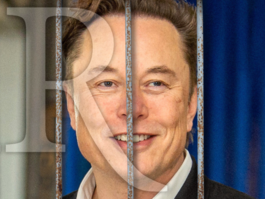71% of Voters Reject Socialism
American voters overwhelmingly prefer the free-market economy to socialism, although younger voters are significantly less enthusiastic about the capitalist system.
A new telephone and online survey by Rasmussen Reports and the Heartland Institute finds that 71% of Likely Voters believe a free-market economic system is better. Only 12% think socialism is better, while 17% are not sure. (To see survey question wording, click here.)
Similarly, just 18% of voters view communism favorably, while 73% have an unfavorable impression, including 57% with a Very Unfavorable opinion of communism. However, 38% of voters under 30 have at least a somewhat favorable view of communism.
“Most Americans continue to reject socialism and embrace free-market capitalism – but for how much longer, no one knows,” said Justin Haskins, senior fellow at The Heartland Institute and the poll’s primary author. “If younger voters’ attitudes don’t change soon, the future of our economy and national identity could be at serious risk.”
(Not getting our eNewsletter? Sign up HERE. Already signed up? Try adding updates@rasmussenreports.com to your contacts or whitelisting us. Still having trouble – email subscriptions@rasmussenreports.com. If it's in the news, it's in our polls).
Rasmussen Reports updates are also available on Twitter or Facebook.
The survey of 1,067 U.S. Likely Voters was conducted on April 30-May 4, 2025 by Rasmussen Reports and the Heartland Institute. The margin of sampling error is +/- 3 percentage points with a 95% level of confidence. Field work for all Rasmussen Reports surveys is conducted by Pulse Opinion Research, LLC. See methodology.
Socialism is rejected by solid majorities of every political category – 82% of Republicans, 67% of Democrats and 65% of voters not affiliated with either major party say a free-market economic system is better. Likewise, 78% of Republicans, 71% of both Democrats and unaffiliated voters have an unfavorable impression of communism.
Despite voters’ declared preference for the free market, however, 31% say they would like to see a democratic socialist candidate win the next presidential election, while 46% say they wouldn’t want a democratic socialist to win the White House in 2028, and 24% aren’t sure.
Fifty-percent (50%) of voters under 30 say they want a democratic socialist to win the next presidential election. It is only among those over 50 that a majority say they wouldn’t want such an outcome in 2028.
Among other findings of the Rasmussen Reports/Heartland Institute survey of Likely Voters:
– Former Vice President Kamala Harris remains the front-runner for the 2028 Democratic Party presidential nomination. Among those who say they’re likely to vote in the 2028 Democratic primaries, 32% favor Harris, 18% support Vermont Sen. Bernie Sanders, and 10% prefer California Gov. Gavin Newsom. Just nine percent (9%) of likely Democratic primary voters would choose New York Rep. Alexandria Ocasio-Cortez (“AOC”). Twelve percent (12%) would prefer some other candidate as the 2028 Democratic presidential nominee and 10% are undecided.
– Among likely 2028 Democratic primary voters who say socialism is a better system, more than half would prefer either Sanders (28%) or AOC (24%) as the party’s next presidential nominee.
– In a hypothetical 2028 general election matchup, Vice President J.D. Vance would narrowly defeat Ocasio-Cortez – with 36% to the Democrat’s 33% – while Sanders would beat Vance by a four-point margin, 40% to 36%.
– In a 2028 matchup against Vance, Sanders would do much better than AOC among Hispanic voters.
– Among those who voted for Donald Trump in the 2024 election, 70% would vote for Vance against Ocasio-Cortez in a 2028 matchup and 69% would vote for Vance against Sanders.
– Asked about the Trump administration’s current trade war with China, with each side imposing tariffs on the other, 57% of all Likely Voters hope the Trump administration wins the tariff war, while 18% hope China wins and 25% are not sure. While 88% of Republicans and 54% of unaffiliated voters hope the Trump administration wins the tariff war against China, only 30% of Democrats share that opinion. Thirty-two percent (32%) of Democrats want China to win the trade war and 38% are not sure.
“It is beyond disturbing that so many Democrats would rather see China win a trade war than their own country succeed,” said the Heartland Institute’s Haskins. “Apparently, Democrats would rather all Americans suffer than allow for the Trump administration to get credit for a job well done.”
Since he agreed to lead Trump’s effort to reduce government waste, Elon Musk has become so hated by liberals that they would overwhelmingly favor a law to put the high-tech billionaire behind bars.
Most voters remain confident that Social Security will pay out its promised benefits, and trust Democrats slightly more than Republicans to deal with the issue.
Additional information from this survey and a full demographic breakdown are available to the public as well as to Platinum Members.
Please sign up for the Rasmussen Reports daily e-mail update (it’s free) or follow us on Facebook. Let us keep you up to date with the latest public opinion news.
The survey of 1,067 U.S. Likely Voters was conducted on April 30-May 4, 2025 by Rasmussen Reports and the Heartland Institute. The margin of sampling error is +/- 3 percentage points with a 95% level of confidence. Field work for all Rasmussen Reports surveys is conducted by Pulse Opinion Research, LLC.
Rasmussen Reports is a media company specializing in the collection, publication and distribution of public opinion information.
We conduct public opinion polls on a variety of topics to inform our audience on events in the news and other topics of interest. To ensure editorial control and independence, we pay for the polls ourselves and generate revenue through the sale of subscriptions, sponsorships, and advertising. Nightly polling on politics, business and lifestyle topics provides the content to update the Rasmussen Reports web site many times each day. If it's in the news, it's in our polls. Additionally, the data drives a daily update newsletter and various media outlets across the country.
Some information, including the Rasmussen Reports daily Presidential Tracking Poll and commentaries are available for free to the general public. Subscriptions are available for $4.95 a month or 34.95 a year that provide subscribers with exclusive access to more than 20 stories per week on upcoming elections, consumer confidence, and issues that affect us all. For those who are really into the numbers, Platinum Members can review demographic crosstabs and a full history of our data.
To learn more about our methodology, click here.





